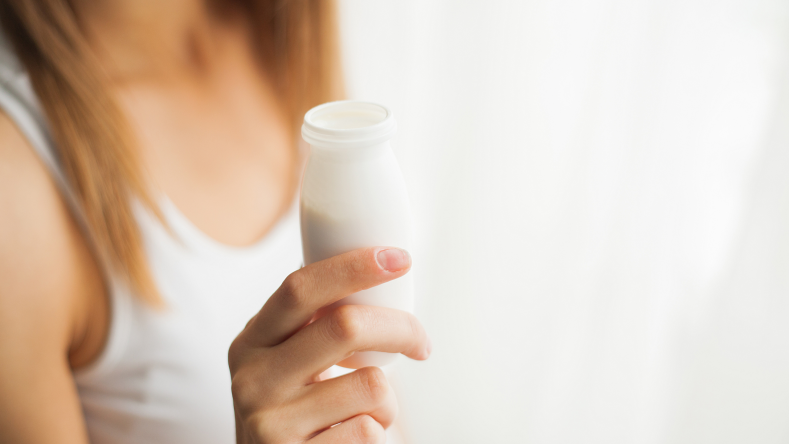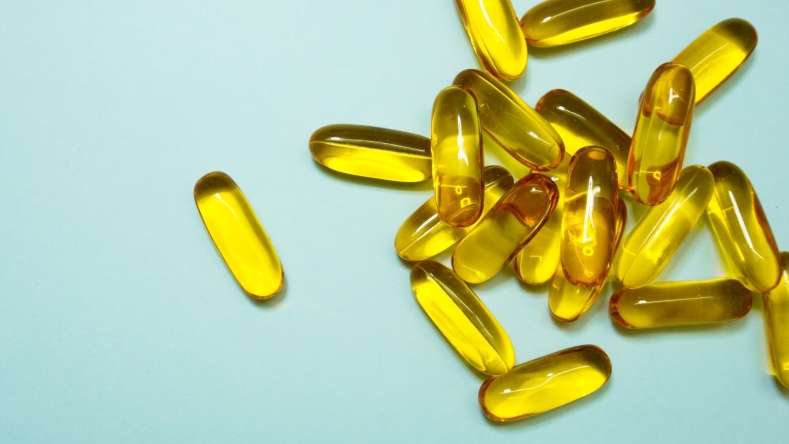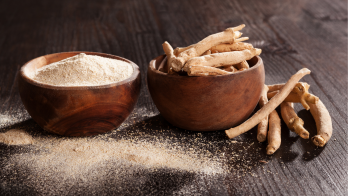The benefits of probiotics
Probiotic enthusiasts have long hailed the benefits of microbes, claiming that they improve gut health, ease eczema, and even improve lactose intolerance. But is there any truth behind these statements? Here’s what science has to say about probiotics, their health benefits, and whether or not a probiotic supplement may be beneficial for you.

Contents
What are probiotics? Common strains of probiotics Probiotics from foods Probiotic supplements Science-backed benefits of probiotics How often should I take probiotics? How long does it take for probiotics to work? Safety and side effects of probiotics Who shouldn’t take probiotics? Summary Key takeawaysFrom supplement makers to fermented food enthusiasts, probiotic proponents argue that beneficial microbes can improve gut health, boost immunity, speed up metabolism, and enhance mood. But do probiotics really work, and if so, which ones should you be taking?
Here’s everything you need to know about probiotics, including what they are, some common strains, the best sources of probiotics, their science-backed benefits, and more.
What are probiotics?
The International Scientific Association for Probiotics and Prebiotics defines probiotics as “live microorganisms that, when administered in adequate amounts, confer a health benefit on the host” [ 1
The majority of these beneficial microorganisms are bacteria, but also include some yeasts.
Where are probiotics found in the body?
Probiotics can be found in several locations in the body including the gut, mouth, skin, lungs, vagina, and urinary tract [ 2
They are most heavily concentrated in the digestive tract where they play a key role in the composition of your microbiome, which is made up of both helpful and potentially harmful microorganisms that can significantly affect your health [ 1
Common strains of probiotics
The seven most common families of probiotic bacteria include Lactobacillus, Bifidobacterium, Saccharomyces, Streptococcus, Enterococcus, Escherichia, and Bacillus. The most common type of probiotic yeast is Saccharomyces [ 1
Within each of these probiotic families (also known as genera), there are different strains. The most common strains of probiotics found in foods and supplements include [ 3
Lactobacillus acidophilus
Lactobacillus bulgaricus
Lactobacillus casei
Lactobacillus gasseri
Lactobacillus plantarum
Bifidobacterium bifidum
Bifidobacterium lactis
Bifidobacterium longum
Enterococcus faecium
Saccharomyces boulardii (yeast)
Sources of probiotics in food and supplements
You can obtain probiotics from certain foods and supplements, so let’s take a closer look at the different sources of these health-boosting microbes.

Probiotics from foods
Fermented foods are often rich sources of live cultures found in living bacteria, yeast, and other potentially beneficial microbes [ 1
Fermented foods that contain live cultures include:
Yogurt
Kefir
Kimchi (a Korean fermented cabbage dish)
Kombucha (fermented tea)
Sauerkraut (fermented cabbage)
Miso (fermented soybean paste)
Pickles (fermented cucumber)
Some cheeses
Raw, unfiltered apple cider vinegar (made from fermented apple sugars)
While store-bought yogurt and kefir often contain science-backed probiotic strains, the same is not true for all other fermented foods; just because something is “fermented” does not mean those microbes provide proven benefits. Learn more about other gut-friendly foods in
this article
.
In addition to fermented foods, some unfermented foods (including certain kinds of milk, juices, smoothies, cereals, nutrition bars, and infant and toddler formulas) have added microorganisms. Whether these foods truly provide probiotic benefits depends on whether their specific species and strains have health effects, the microorganism levels they contain when eaten, and whether the microbes survive digestion and transit through the intestine [ 1

Probiotic supplements
Consuming probiotics from foods can certainly have health-boosting benefits, but if you’re seeking a particular benefit linked to a specific strain (or strains), a quality probiotic supplement may be your best bet.
Probiotics are available as dietary supplements in capsules, powders, liquids, and other forms, and are sold in a wide variety of strains and doses [ 1
Probiotics are measured in colony-forming units, commonly indicated as CFU on supplement labels, which indicates the number of viable microbes. Many probiotic supplements contain 1 to 10 billion CFU per dose, whereas some products contain 50 billion or more. While it’s crucial your supplement contains enough live microbes to be effective, higher CFU counts do not necessarily mean greater health benefits [ 1
Choosing a probiotic supplement can be challenging since many commercial products have not been scientifically studied. Furthermore, determining how much and which strains to take can be both time-consuming and overwhelming if you’re not familiar with probiotic research.
The key to choosing the best probiotic is selecting the strain (or strains) that has been proven beneficial for your specific situation, and making sure your supplement contains an adequate amount of live microorganisms.
Science-backed benefits of probiotics
Research shows probiotics may hold significant health benefits, particularly for digestive and heart health, preventing eczema, alleviating lactose intolerance, and boosting immune response. Let’s explore these in more detail.
Probiotics and digestive health.
Probiotics are probably most well known for their ability to improve digestion and gut health when the body’s natural microbial balance is thrown off, typically due to infection.
Research shows these good gut microbes help your body digest food, create vitamins, support and protect the cells that make up the lining of your digestive tract, promote regularity, and even break down and absorb some medications [ 1 2 30
Probiotics for diarrhea.
Probiotics have been well researched for their ability to prevent or treat diarrhea due to a variety of causes in both adults and children [ 5
Antibiotic-associated diarrhea: Up to 30% of patients who use antibiotics experience antibiotic-associated diarrhea, as they can alter the balance of good and bad bacteria in the gut [
1
]. Evidence suggests taking probiotics by mouth, especially Lactobacillus and Saccharomyces boulardii, seems to reduce the risk of getting diarrhea from antibiotics in both adults and children. [5
]Diarrhea from rotavirus: Rotavirus is another common cause of diarrhea that can affect both children and adults but is typically more severe in children. Research shows that those who took multiple probiotics (including Lactobacillus rhamnosus GG)had experienced a significant reduction in the duration of acute rotavirus diarrhea in children compared to those not given probiotics [
4
]. Another small, randomized controlled trial found taking Saccharomyces boulardii probiotics by mouth also reduced the length of diarrhea in children caused by rotavirus [5
].Travelers’ diarrhea: It is estimated traveler’s diarrhea affects up to 50% of travelers depending on the destination and season of travel and is commonly caused by eating contaminated food or drinking contaminated water [
6
]. One meta-analysis found multiple oral probiotics, including Saccharomyces boulardii and a combination of Lactobacillus acidophilus and Bifidobacterium bifidum, can help prevent diarrhea in people traveling to foreign places [6
].C. difficile infection: A review of probiotic research found that Lactobacillus-containing probiotic mixtures and S. boulardii may be effective for preventing Clostridium difficile infection, a bacteria that causes severe diarrhea and inflammation of the colon commonly attributed to antibiotic use [
22
].
Probiotics for preventing eczema.
Atopic dermatitis (the most common type of eczema and inflammatory skin disorder) affects nearly 15-20% of children and 1-2% of adults [ 1
Numerous studies show that probiotic supplementation during pregnancy through early infancy reduces a child’s risk of developing eczema from atopic dermatitis [ 1 1
While research shows certain probiotic strains may help prevent eczema caused by atopic dermatitis in young children, it is less clear in regards to whether or not they are effective in treating this condition in children or adults who already have it. While some studies have found some benefits and reduction of eczema symptoms with probiotics, they may only provide limited relief and the evidence remains conflicting [ 1
Probiotics to lower cholesterol.
38% of American adults have high cholesterol levels 1 7
Researchers have studied the use of probiotics to reduce blood cholesterol levels, which may work by increasing the breakdown of cholesterol in the body, reducing the absorption from dietary cholesterol, and moderating how much cholesterol the body produces [ 1
One meta-analysis of 30 high-quality trials found individuals with high total cholesterol (>200 mg/dL) who were treated with probiotics for 3 to 12 weeks had 7.8 mg/dL lower total cholesterol and 7.3 mg/dL lower LDL (bad) cholesterol levels compared to those treated with placebo [ 8 8
Another meta-analysis looking at the cholesterol-lowering benefits of Lactobacillus found this bacteria (particularly the Lactobacillus reuteri and Lactobacillus plantarum strains) significantly reduced both total and LDL cholesterol levels by 4.68 mg/dL and 4.14 mg/dL, respectively [ 9
While any reductions in total and LDL cholesterol are beneficial, the reductions have been modest and in some cases, the research conflicting. More high-quality studies and reviews are needed to determine probiotics' potential clinical impact on cholesterol and which strains can produce the greatest benefit.
Probiotics for better blood pressure.
High blood pressure is a condition that affects nearly 1 in 2 adults in the US and increases your risk for heart disease and stroke [ 10 11
Other studies found that probiotic supplements had to exceed 8 weeks and 10 million colony-forming units (CFUs) daily to produce benefits [ 12
Probiotics and inflammatory digestive disorders.
Research suggests that probiotic supplementation might be beneficial for individuals suffering from certain inflammatory digestive disorders and diseases, as probiotics may benefit the intestinal barrier, assist the immune system in removing harmful bacteria, and break down nutrients [ 16
While inflammatory bowel syndrome (IBS) and ulcerative colitis (UC) are two different disorders of the GI tract, they share some common symptoms such as pain and change in bowel function. The exact causes of these conditions are still unclear but most studies suggest that the gut microbiome is an important factor in the development of both UC and IBS [ 13
Research shows strains from the Bifidobacterium and Lactobacillus genera have improved symptoms in people with mild ulcerative colitis as well as IBS [ 14 15 16 17
Probiotics and lactose intolerance.
Over 60% of the human population is unable to fully digest the sugar (lactose) in milk [ 18
A number of controlled studies with individuals consuming yogurt from live cultures have shown probiotics can enhance the digestion of lactose and reduce symptoms of lactose intolerance [ 18 19 19 20
Probiotics and the immune system.
Studies show that probiotics may inhibit the growth and adhesion of harmful pathogens and enhance the response of certain immune cells [ 21
Reduced risk of respiratory infections. One study found that children who were given fermented milk products containing 1 billion CFUs of Lactobacillus GG daily had a reduced risk of respiratory infections by 34% compared to children not given any probiotic. Those given the probiotic drink also had significantly fewer days with respiratory symptoms [
23
].Improved response to flu shot. Research also indicates that probiotics may enhance the body’s immune response to the flu shot, as adults who took probiotics or prebiotics showed significant improvements in the protection against multiple strains, including H1N1, H3N2, and influenza B [
24
].Prevent UTIs. Probiotics may also bolster the body’s natural immune defenses against urinary tract infections. A review of clinical studies also found several Lactobacillus strains effective in the prevention of urinary tract infections (UTIs) in women. Of the probiotics studied, Lactobacillus rhamnosus GR-1 and L. reuteri RC-14 (previously called L. fermentum RC-14) seemed to be most effective. [
25
]
How often should I take probiotics?
There's no daily recommended dose of probiotics; however, most studies show that taking probiotics every day can help with a variety of health concerns [ 19 19
How long does it take for probiotics to work?
How long probiotics take to work depends on the condition or symptom you’re trying to treat, as well as the particular strain and supplement you’re taking.
Diarrhea: Some studies have found that probiotics and rehydration therapy can reduce the duration and frequency of infectious diarrhea in as little as 2 days [
26
]General gut or immune health: Results may take weeks since those good microbes need time to establish new residence in your gut and rebalance the microbiome. One clinical trial found that people with IBS given Saccharomyces boulardii experienced significant improvements after 4 weeks compared to those given a placebo [
27
].Cholesterol and blood pressure: Studies that show cholesterol- and blood pressure-lowering benefits of probiotics are most significant after 8 weeks of daily supplementation [
8
,12
].
Regardless of why you’re taking probiotics, the benefits can take time and may require daily supplementation to maintain long-term benefits.
Safety and side effects of probiotics
Side effects of probiotics are usually mild and most often include gas or bloating, especially in the first few days of taking them [ 5
However, probiotics are safe for most adults, as evidenced with the following strains [ 5
Lactobacillus probiotics appear to be safe when taken for up to 9 months.
Bifidobacteria probiotics appear to be safe when taken for up to 12 months.
Streptococcus thermophilus probiotics appear to be safe when taken for up to 12 months.
Saccharomyces boulardii probiotics appear to be safe when taken for up to 15 months
Who shouldn’t take probiotics?
While most people can safely take probiotics, they may not be appropriate for everyone.
In rare cases, probiotic bacteria and yeasts can enter the bloodstream and cause infections. Those with suppressed immune systems, venous catheters, damaged heart valves, or those who have had recent surgeries, or prolonged hospitalizations are at the greatest risk for infection from probiotics [ 5 28 29
Additionally, individuals with yeast allergies can be allergic to probiotic products with Saccharomyces boulardii and should avoid those that contain it [ 5
Summary
Probiotics are live microorganisms that, when taken in adequate amounts, can produce significant health benefits. They can be obtained from the diet through fermented and fortified foods, as well as dietary supplements.
Research shows probiotics can prevent and treat certain infectious diarrhea, prevent eczema in infants, reduce high cholesterol and blood pressure, ease symptoms of IBS and ulcerative colitis, improve lactose intolerance, and enhance the body’s immune response. That said, not all probiotics have the same effects. One probiotic or combination of probiotics may be helpful for certain conditions, while others will not. The key to choosing the best probiotic is selecting the strain (or strains) that has been proven beneficial for your specific need, and making sure your supplement contains an adequate amount of microorganisms.
Disclaimer: The text, images, videos, and other media on this page are provided for informational purposes only and are not intended to treat, diagnose or replace personalized medical care.
Key takeaways
Probiotics can be used to prevent and treat certain infectious diarrhea, prevent eczema in infants, reduce high cholesterol and blood pressure, ease symptoms of IBS and ulcerative colitis, improve lactose intolerance, and enhance the body’s immune response.
Many probiotic supplements contain 1 to 10 billion CFU per dose, though some may have significantly more which may not be necessary to produce benefits.
For best results, choose a probiotic supplement that contains the strain (or strains) that has been proven beneficial for your specific need and contains an adequate amount of microorganisms.
References
Office of Dietary Supplements - Probiotics. (2022, June 2). National Institutes of Health (NIH). Retrieved June 15, 2022, from
https://ods.od.nih.gov/factsheets/Probiotics-HealthProfessional/
Probiotics: What is it, Benefits, Side Effects, Food & Types. (2020, March 9). Cleveland Clinic. Retrieved June 15, 2022, from
https://my.clevelandclinic.org/health/articles/14598-probiotics
Harvard Health. (2017, June 7). The benefits of probiotics bacteria. Retrieved June 15, 2022, from
https://www.health.harvard.edu/staying-healthy/the-benefits-of-probiotics
Ahmadi, E., Alizadeh-Navaei, R., & Rezai, M. S. (2015). Efficacy of probiotic use in acute rotavirus diarrhea in children: A systematic review and meta-analysis. Caspian journal of internal medicine, 6(4), 187–195.
https://pubmed.ncbi.nlm.nih.gov/26644891/
PROBIOTICS: Overview, Uses, Side Effects, Precautions, Interactions, Dosing and Reviews. (n.d.). WebMD. Retrieved June 20, 2022, from
https://www.webmd.com/vitamins/ai/ingredientmono-1598/probiotics
McFarland L. V. (2007). Meta-analysis of probiotics for the prevention of traveler's diarrhea. Travel medicine and infectious disease, 5(2), 97–105.
https://doi.org/10.1016/j.tmaid.2005.10.003
High Cholesterol Facts. (2021, September 27). Centers for Disease Control and Prevention. Retrieved June 20, 2022, from
https://www.cdc.gov/cholesterol/facts.htm
Cho, Y. A., & Kim, J. (2015). Effect of Probiotics on Blood Lipid Concentrations: A Meta-Analysis of Randomized Controlled Trials. Medicine, 94(43), e1714.
https://doi.org/10.1097/MD.0000000000001714
Wu, Y., Zhang, Q., Ren, Y., & Ruan, Z. (2017). Effect of probiotic Lactobacillus on lipid profile: A systematic review and meta-analysis of randomized, controlled trials. PloS one, 12(6), e0178868.
https://doi.org/10.1371/journal.pone.0178868
Hypertension Prevalence in the U.S. | Million Hearts®. (2021, March 22). Centers for Disease Control and Prevention. Retrieved June 20, 2022, from
https://millionhearts.hhs.gov/data-reports/hypertension-prevalence.html)
.Qi, D., Nie, X. L., & Zhang, J. J. (2020). The effect of probiotics supplementation on blood pressure: a systemic review and meta-analysis. Lipids in health and disease, 19(1), 79.
https://doi.org/10.1186/s12944-020-01259-x
Khalesi, S., Sun, J., Buys, N., & Jayasinghe, R. (2014). Effect of probiotics on blood pressure: a systematic review and meta-analysis of randomized, controlled trials. Hypertension (Dallas, Tex. : 1979), 64(4), 897–903.
https://doi.org/10.1161/HYPERTENSIONAHA.114.03469
Noor, S. O., Ridgway, K., Scovell, L., Kemsley, E. K., Lund, E. K., Jamieson, C., Johnson, I. T., & Narbad, A. (2010). Ulcerative colitis and irritable bowel patients exhibit distinct abnormalities of the gut microbiota. BMC Gastroenterology, 10(1).
https://doi.org/10.1186/1471-230x-10-134
Ford, A. C., Moayyedi, P., Lacy, B. E., Lembo, A. J., Saito, Y. A., Schiller, L. R., Soffer, E. E., Spiegel, B. M., Quigley, E. M., & Task Force on the Management of Functional Bowel Disorders (2014). American College of Gastroenterology monograph on the management of irritable bowel syndrome and chronic idiopathic constipation. The American journal of gastroenterology, 109 Suppl 1, S2–S27.
https://doi.org/10.1038/ajg.2014.187
Saez-Lara, M. J., Gomez-Llorente, C., Plaza-Diaz, J., & Gil, A. (2015). The role of probiotic lactic acid bacteria and bifidobacteria in the prevention and treatment of inflammatory bowel disease and other related diseases: a systematic review of randomized human clinical trials. BioMed research international, 2015, 505878.
https://doi.org/10.1155/2015/505878
Lembo, A., MD. (2020, June 22). Probiotics — even inactive ones — may relieve IBS symptoms. Harvard Health. Retrieved June 20, 2022, from
https://www.health.harvard.edu/blog/probiotics-even-inactive-ones-may-relieve-ibs-symptoms-2020062220303
.Kruis, W., Fric, P., Pokrotnieks, J., Lukás, M., Fixa, B., Kascák, M., Kamm, M. A., Weismueller, J., Beglinger, C., Stolte, M., Wolff, C., & Schulze, J. (2004). Maintaining remission of ulcerative colitis with the probiotic Escherichia coli Nissle 1917 is as effective as with standard mesalazine. Gut, 53(11), 1617–1623.
https://doi.org/10.1136/gut.2003.037747
Oak, S. J., & Jha, R. (2019). The effects of probiotics in lactose intolerance: A systematic review. Critical reviews in food science and nutrition, 59(11), 1675–1683.
https://doi.org/10.1080/10408398.2018.1425977
Probiotics and prebiotics. (2017, February). World Gastroenterology Organisation (WGO). Retrieved June 15, 2022, from
https://www.worldgastroenterology.org/guidelines/probiotics-and-prebiotics/probiotics-and-prebiotics-english
Leis, R., de Castro, M. J., de Lamas, C., Picáns, R., & Couce, M. L. (2020). Effects of Prebiotic and Probiotic Supplementation on Lactase Deficiency and Lactose Intolerance: A Systematic Review of Controlled Trials. Nutrients, 12(5), 1487.
https://doi.org/10.3390/nu12051487
Reid, G., Jass, J., Sebulsky, M. T., & McCormick, J. K. (2003). Potential uses of probiotics in clinical practice. Clinical microbiology reviews, 16(4), 658–672.
https://doi.org/10.1128/CMR.16.4.658-672.2003
Na, X., & Kelly, C. (2011). Probiotics in clostridium difficile Infection. Journal of clinical gastroenterology, 45 Suppl(Suppl), S154–S158.
https://doi.org/10.1097/MCG.0b013e31822ec787
Hojsak, I., Snovak, N., Abdović, S., Szajewska, H., Misak, Z., & Kolacek, S. (2010). Lactobacillus GG in the prevention of gastrointestinal and respiratory tract infections in children who attend day care centers: a randomized, double-blind, placebo-controlled trial. Clinical nutrition (Edinburgh, Scotland), 29(3), 312–316.
https://doi.org/10.1016/j.clnu.2009.09.008
Lei, W. T., Shih, P. C., Liu, S. J., Lin, C. Y., & Yeh, T. L. (2017). Effect of Probiotics and Prebiotics on Immune Response to Influenza Vaccination in Adults: A Systematic Review and Meta-Analysis of Randomized Controlled Trials. Nutrients, 9(11), 1175.
https://doi.org/10.3390/nu9111175
Falagas, M. E., Betsi, G. I., Tokas, T., & Athanasiou, S. (2006). Probiotics for prevention of recurrent urinary tract infections in women: a review of the evidence from microbiological and clinical studies. Drugs, 66(9), 1253–1261.
https://doi.org/10.2165/00003495-200666090-00007
Probiotics for treating acute infectious diarrhoea. (2010). Prescriber, 21(23–24), 36.
https://doi.org/10.1002/psb.701
Choi, C. H., Jo, S. Y., Park, H. J., Chang, S. K., Byeon, J. S., & Myung, S. J. (2011). A randomized, double-blind, placebo-controlled multicenter trial of saccharomyces boulardii in irritable bowel syndrome: effect on quality of life. Journal of clinical gastroenterology, 45(8), 679–683.
https://doi.org/10.1097/MCG.0b013e318204593e
Doron, S., & Snydman, D. R. (2015). Risk and safety of probiotics. Clinical infectious diseases : an official publication of the Infectious Diseases Society of America, 60 Suppl 2(Suppl 2), S129–S134.
https://doi.org/10.1093/cid/civ085
Boyle, R. J., Robins-Browne, R. M., & Tang, M. L. (2006). Probiotic use in clinical practice: what are the risks?. The American journal of clinical nutrition, 83(6), 1256–1447.
https://doi.org/10.1093/ajcn/83.6.1256
Shreiner, A. B., Kao, J. Y., & Young, V. B. (2015). The gut microbiome in health and in disease. Current opinion in gastroenterology, 31(1), 69–75.
https://doi.org/10.1097/MOG.0000000000000139







